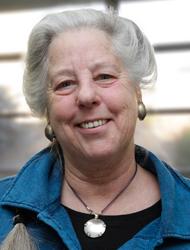Leanna J. Standish
Ph.D., ND, LAc, FABNO
Dr. Standish is a professor for the School of Naturopathic Medicine at Bastyr, a clinical professor for the School of Public Health at the University of Washington, and an affiliate research professor in the University of Washington's School of Medicine's radiology department. Dr. Standish is also the medical director of the Bastyr Integrative Oncology Research Center (BIORC) and a professor at the Bastyr University Research Institute. She has served as principal investigator on several National Institutes of Health (NIH) research grants since 1994.
Dr. Standish is a neuroscientist and a naturopathic physician who is board certified in naturopathic oncology. Currently her research is focused on the Asian medicinal mushroom Trametes versicolor in the treatment of breast and prostate cancer; functional brain imaging in the treatment of brain cancer; and the development of integrative oncology outcomes studies. New projects using IV Resveratrol and IV Curcumin to treat cancer are being developed.
In 2010, Dr. Standish became the co-principal investigator for the Bastyr/UW Oncomycology Translational Research Center, NIH/NCCAM (U19); PSK as Neoadjuvant Therapy for Locally Advanced Breast Cancer Principal; and the Breast Cancer Integrative Oncology: Prospective Matched Controlled Outcomes Study, a partnership with the Fred Hutchinson Cancer Research Center.
She has provided adjunctive naturopathic medical care to hundreds of cancer patients and has worked collaboratively with Seattle area oncologists to provide integrated conventional/CAM care. A founding board member of the Oncology Association of Naturopathic Physicians, Dr. Standish was board certified in naturopathic oncology in 2006. Her recognition by the oncology community as an expert in naturopathic medicine is evidenced by her being voted one of Seattle’s Best Physicians in the Seattle Metropolitan Magazine in 2002, 2004, and 2008. She has been a member of both the NIH and the Department of Defense study sections for scientific review of CAM research in cancer. Dr. Standish has served as a CAM oncology advisor at MD Anderson Cancer Center.
Dr. Standish's interests include naturopathic oncology and neurology, chronic hepatitis C, as well as basic neuroscience research.
Education:
- Board certified in naturopathic oncology, 2006
- MS in acupuncture and Oriental medicine from Bastyr University, 1994
- ND from Bastyr University, 1991
- Ph.D. in neuroscience/biopsychology from the University of Massachusetts,1978
Research highlights
Dr. Standish's research over the last 15 years has been focused on HIV/AIDS, cancer, hepatitis C and functional brain-imaging cancer. She has collaborated with investigators at Fred Hutchinson Cancer Research Center, and Children's Hospital in the study of CAM use among cancer patients in Washington state and also has directed research at Bastyr University to identify and describe the treatments used for breast cancer by naturopathic physicians in North America.
She has been the principal investigator or co-investigator on several integrated oncology research projects, including a randomized clinical trial of meditation or massage in end-of-life cancer patients, a phase I study of a medicinal mushroom as an adjuvant treatment for breast cancer, and the development of an integrated oncology website for Seattle Cancer Care Alliance physicians and patients. She is the medical director of the new Bastyr University Integrated Oncology Research Clinic (BIORC), and also is interested in the scientific validation of homeopathic principles.
In her clinical practice, Dr. Standish specializes in treating cancer, hepatitis C and neurological diseases. She also conducts basic neurophysiological research on mind/body interactions. She has experience to mentor postdoctoral fellows in the areas of CAM and integrated cancer treatment and prevention, adjunctive naturopathic medical management of adenocarcinoma, CAM research design, and both practice-based and outcomes research methods.
